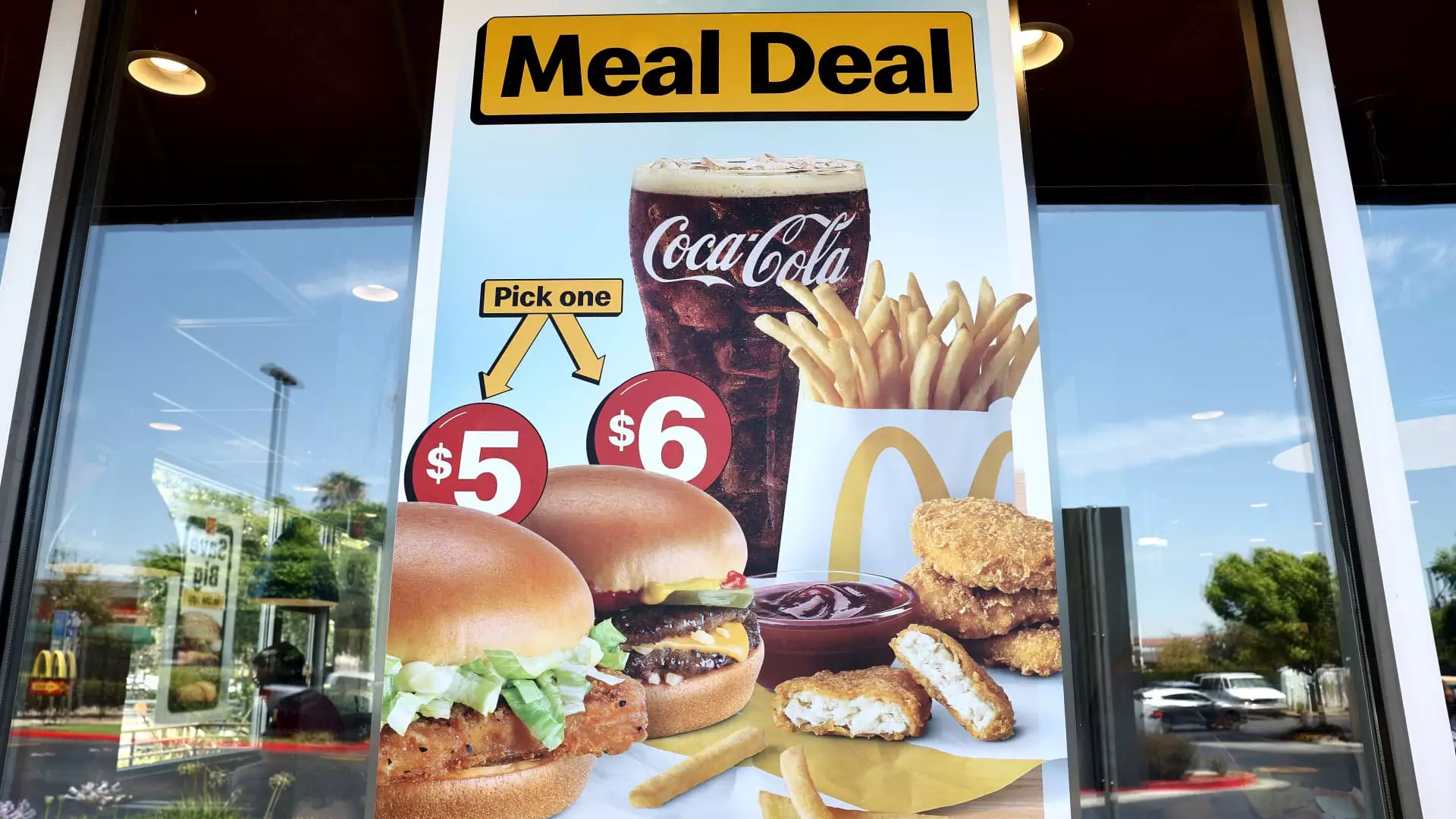In the current landscape of the restaurant industry, CEOs have become fixated on the concept of “value” as a means to explain the decline in sales and traffic within their establishments. The word “value” has been repeatedly emphasized in various quarterly conference calls by major players in the industry, such as McDonald’s, Yum Brands, and Papa John’s. This obsession stems from the fact that the cost of dining out has risen significantly over the past few years, resulting in a noticeable drop in consumer spending.
As the prices of food away from home continue to climb, consumers have become more discerning in their spending habits, seeking out brands that offer compelling value. This shift in consumer behavior has prompted many restaurant chains to leverage discounts and promotions as a means to entice customers back through their doors. For instance, the $5 meal deals offered by McDonald’s, Burger King, and Taco Bell have proven to be successful in attracting budget-conscious consumers.
Despite efforts to enhance their value proposition, many restaurant executives have candidly admitted that their chains have been falling short in delivering on customer expectations. McDonald’s CEO, Chris Kempczinski, acknowledged that the company’s reputation for value had recently dimmed, attributing the decline in sales to lackluster value execution. Similar sentiments were echoed by other industry leaders who recognized the need to recalibrate their value offerings in response to changing consumer preferences.
While some restaurant chains have struggled to maintain their footing in a value-driven market, others have managed to thrive by focusing on quality and portion size. Chipotle Mexican Grill, for instance, has reported strong same-store sales growth by emphasizing generous portions and customer satisfaction. Despite facing scrutiny over portion sizes, Chipotle has remained steadfast in its commitment to providing value through high-quality ingredients and robust portions.
Amidst the push for value-driven strategies, restaurant stocks have faced increased scrutiny from investors concerned about the industry’s financial health. Share prices of major chains like McDonald’s, Restaurant Brands, and Starbucks have taken a hit, reflecting investor unease over profitability and market share retention. The emphasis on discounts and promotions, while effective in driving customer traffic, has raised concerns about long-term profitability and franchisee viability.
As restaurants engage in what are referred to as “value wars,” where chains compete with one another to offer the best deals, the industry is bracing for potential negative repercussions. While discounts may attract customers in the short term, they could erode profitability and create a race to the bottom mentality among industry players. This dynamic poses a significant challenge for restaurants looking to strike a delicate balance between value-driven offerings and sustainable financial performance.
Despite the risks associated with heavy discounting and promotional activity, many restaurant chains view the focus on value as an opportunity to enhance their value-for-money perception among consumers. By engaging in conversations about value and promoting the affordability of their offerings, companies like Burger King have managed to retain customers and drive traffic without significant negative impacts on their business. The ability to strike a balance between value and profitability will be crucial for restaurants seeking to navigate the evolving landscape of the industry.
The obsession with value among restaurant CEOs reflects a broader shift in consumer preferences and spending habits. Success in the industry will be contingent on the ability of restaurant chains to deliver on customer expectations while maintaining financial stability. By striking a balance between value-driven strategies and profit optimization, companies can position themselves for long-term success in an increasingly competitive market.

